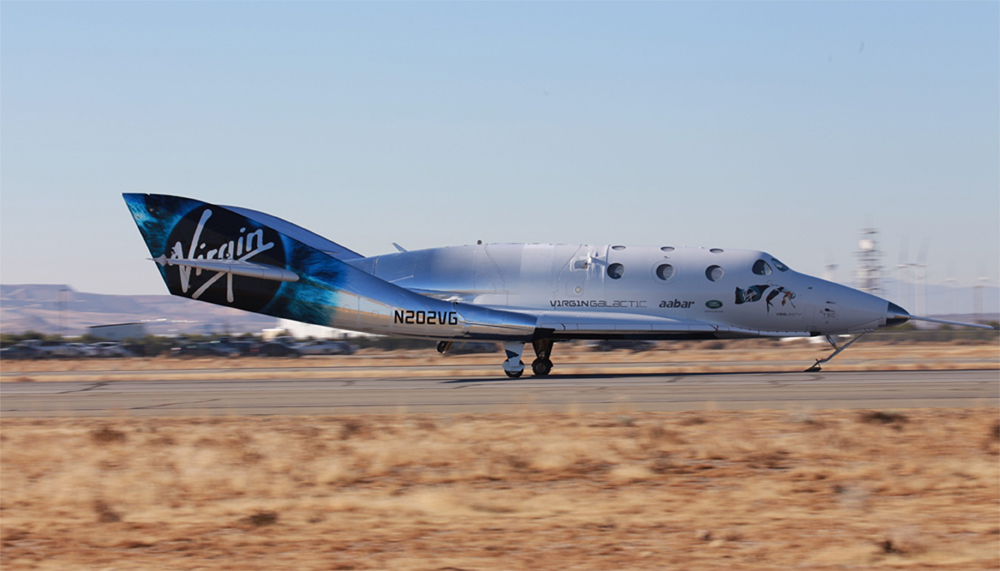
Virgin Galactic's second SpaceShipTwo vehicle has taken to the skies once again.
The spacecraft, known as VSS Unity, completed its seventh unpowered "glide flight" today (Jan. 11) over Mojave, California, Virgin Galactic representatives said.
Unity hadn't been aloft since August 2017. Engineers and technicians had spent the intervening five months making sure the vehicle will be ready for the higher loads of rocket-powered flight when the time comes, according to the company. [Photos: Virgin Galactic's SpaceShipTwo VSS Unity]
"Today we tested that work by pushing Unity’s atmospheric capabilities hard, touching top-end glide speeds as pilots Mark 'Forger' Stucky and Michael 'Sooch' Masucci completed a busy test card," Virgin Galactic wrote in an update today.
"After release from mothership VMS Eve, the spaceship was immediately pushed into a sharp descent, accelerating to Mach 0.9, which is around the maximum airspeed we can achieve without igniting the rocket motor!" they added. (Mach 1 is the speed of sound — 767 mph, or 1,234 km/h, at room temperature.)
As that note indicates, SpaceShipTwo is designed to be carried aloft by a specialized airplane. During operational flights, the spacecraft will be dropped at an altitude of about 50,000 feet (15,000 meters), then boost itself to suborbital space using its own rocket motor.
The passengers aboard — SpaceShipTwo can fit six paying customers, along with two pilots — will get to experience a few minutes of weightlessness and see the curvature of Earth against the blackness of space before gliding back down to Earth.
Get the Space.com Newsletter
Breaking space news, the latest updates on rocket launches, skywatching events and more!
Tickets to ride SpaceShipTwo currently sell for $250,000. To date, more than 600 people have put a deposit down for a seat, Virgin Galactic representatives have said.
But VSS Unity will have to ace some powered flights before it can start taking customers and research payloads to suborbital space. The company is laying the groundwork for powered tests: During today's flight, Unity carried water ballast to simulate the rocket motor's weight, and it was outfitted with a thermal protection system, which will shield the spacecraft from the heat and friction of atmospheric re-entry, Virgin Galactic representatives said.
Unity is Virgin's second SpaceShipTwo vehicle. The first, VSS Enterprise, broke apart during a rocket-powered test in October 2014. The tragic accident killed co-pilot Michael Alsbury and injured pilot Peter Siebold.
Follow Mike Wall on Twitter @michaeldwall and Google+. Follow us @Spacedotcom, Facebook or Google+. Originally published on Space.com.
Join our Space Forums to keep talking space on the latest missions, night sky and more! And if you have a news tip, correction or comment, let us know at: community@space.com.

Michael Wall is a Senior Space Writer with Space.com and joined the team in 2010. He primarily covers exoplanets, spaceflight and military space, but has been known to dabble in the space art beat. His book about the search for alien life, "Out There," was published on Nov. 13, 2018. Before becoming a science writer, Michael worked as a herpetologist and wildlife biologist. He has a Ph.D. in evolutionary biology from the University of Sydney, Australia, a bachelor's degree from the University of Arizona, and a graduate certificate in science writing from the University of California, Santa Cruz. To find out what his latest project is, you can follow Michael on Twitter.









